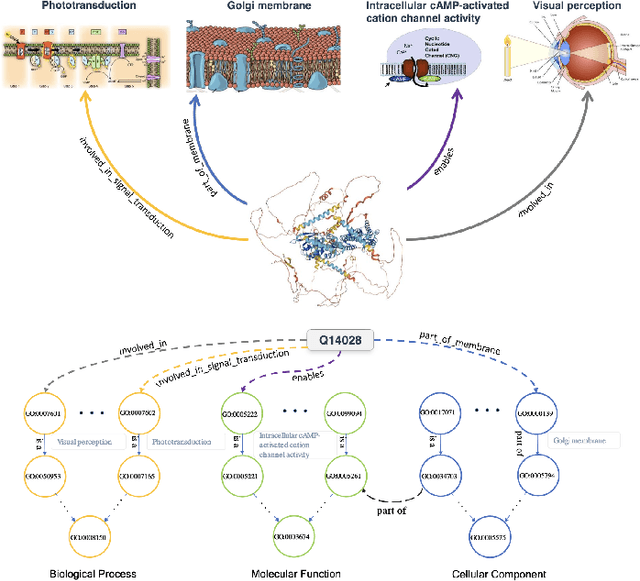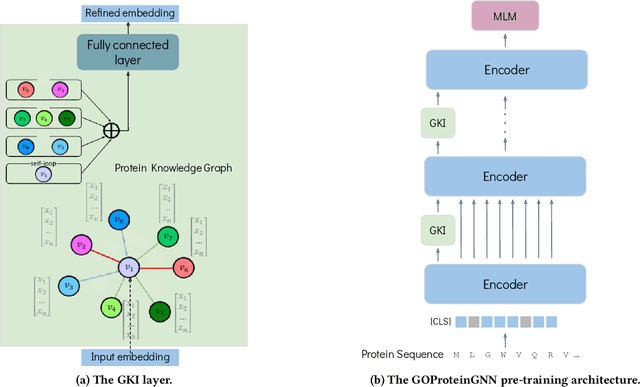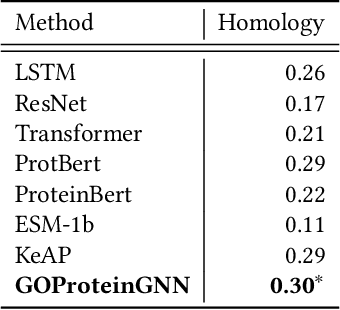Dan Kalifa
GOProteinGNN: Leveraging Protein Knowledge Graphs for Protein Representation Learning
Jul 31, 2024



Abstract:Proteins play a vital role in biological processes and are indispensable for living organisms. Accurate representation of proteins is crucial, especially in drug development. Recently, there has been a notable increase in interest in utilizing machine learning and deep learning techniques for unsupervised learning of protein representations. However, these approaches often focus solely on the amino acid sequence of proteins and lack factual knowledge about proteins and their interactions, thus limiting their performance. In this study, we present GOProteinGNN, a novel architecture that enhances protein language models by integrating protein knowledge graph information during the creation of amino acid level representations. Our approach allows for the integration of information at both the individual amino acid level and the entire protein level, enabling a comprehensive and effective learning process through graph-based learning. By doing so, we can capture complex relationships and dependencies between proteins and their functional annotations, resulting in more robust and contextually enriched protein representations. Unlike previous fusion methods, GOProteinGNN uniquely learns the entire protein knowledge graph during training, which allows it to capture broader relational nuances and dependencies beyond mere triplets as done in previous work. We perform a comprehensive evaluation on several downstream tasks demonstrating that GOProteinGNN consistently outperforms previous methods, showcasing its effectiveness and establishing it as a state-of-the-art solution for protein representation learning.
Leveraging World Events to Predict E-Commerce Consumer Demand under Anomaly
May 22, 2024Abstract:Consumer demand forecasting is of high importance for many e-commerce applications, including supply chain optimization, advertisement placement, and delivery speed optimization. However, reliable time series sales forecasting for e-commerce is difficult, especially during periods with many anomalies, as can often happen during pandemics, abnormal weather, or sports events. Although many time series algorithms have been applied to the task, prediction during anomalies still remains a challenge. In this work, we hypothesize that leveraging external knowledge found in world events can help overcome the challenge of prediction under anomalies. We mine a large repository of 40 years of world events and their textual representations. Further, we present a novel methodology based on transformers to construct an embedding of a day based on the relations of the day's events. Those embeddings are then used to forecast future consumer behavior. We empirically evaluate the methods over a large e-commerce products sales dataset, extracted from eBay, one of the world's largest online marketplaces. We show over numerous categories that our method outperforms state-of-the-art baselines during anomalies.
 Add to Chrome
Add to Chrome Add to Firefox
Add to Firefox Add to Edge
Add to Edge